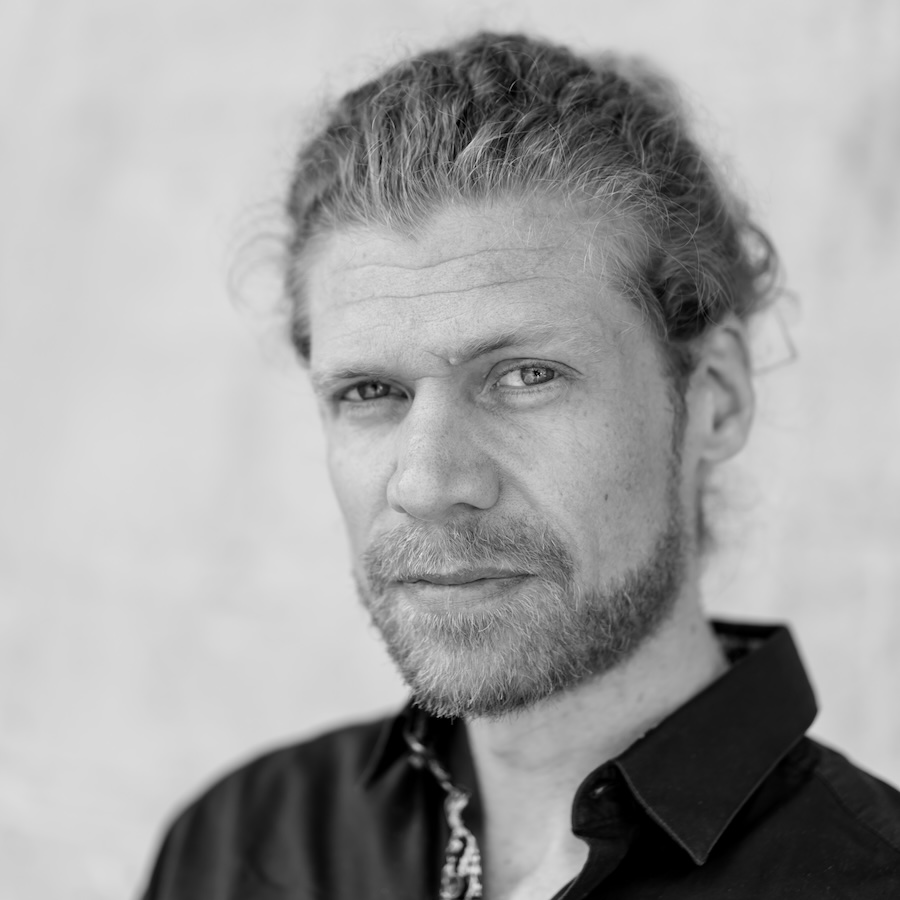Doc Edge film Click The Link Below unmasks the murky world of online influencers

A remote tribe in Indonesia inspired Norwegian film-maker Audun Amundsen to make Click The Link Below, a documentary about online influencers.
About 20 years ago, young Norwegian backpacker Audun Amundsen set out to explore India. What was meant to be a three-month adventure took an unexpected turn when he lost his return flight ticket. That twist of fate led to a two-year journey across Southeast Asia.
“I just wanted to get as far away from my own culture as possible. So I ended up deep in the jungles of Indonesia in Mentawai, where I met a tribe who lived there. That was back in 2004,” says Amundsen.
The way the tribal family lived – without money, electricity, or what most people consider essentials – mesmerised him. “I thought that was incredibly interesting and I decided to start making a film about that.”
Full of ambition but new to film-making, Amundsen returned home to learn the craft from scratch before eventually putting on his director’s hat.
From there, he spent 15 years following the family with his camera, fully immersing himself in their ways of life, including learning their unwritten dialect. The raw footage he captured over the years became his first documentary, Newtopia – an award-winning film that reveals the impact of modernisation on the tribe and their culture.

A lightbulb moment
After returning to Norway from the jungle, Amundsen couldn’t believe how much the modern world had changed. “I was quite shocked because I had documented the paradigm shift that happened in the jungle. They had gone from not using money to having bank cards, roads and everything that comes with modernisation.
“But what really surprised me was what had happened in my own society while I was away. Suddenly, social media was everywhere, and the changes it brought had transformed the world in a profound way,” says Amundsen.
With social media taking the world by storm, the rise of influencer culture caught Amundsen’s attention. “Eventually, these gurus started popping up, telling me it was easy to get rich online.” Eager to break free from financial constraints, he bought into the hype of influencer marketing.
“I thought maybe I could make more money by creating a business that helps film-makers market their films online,” he says. So he invested $7,500 in an online coaching programme that promised a tenfold return.
Stepping into the world of money-making gurus sparked a lightbulb moment for Amundsen’s latest film, Click The Link Below. “I realised, ‘Oh, this should actually be my next film,’” he says. While Newtopia explored tribal life without money, electricity or wi-fi, this new documentary portrays the contrasting pursuit of success in the digital age.
Bold dream meets reality
To get a close look into the enticing industry, Amundsen spent thousands of dollars interviewing top digital marketers and online influencers for their golden advice. But he soon realised the gap between the glamorous online facade and the harsh reality.
“You have these very successful pioneers who’ve made so much money, they can easily sell you the dream – with the flashy cars, the mansions and all of it,” says Amundsen. “But it’s like a pyramid: at the lower levels, people are really just struggling, trying to make things work – and that’s very difficult.”
The film captures Amundsen’s frustration as he struggles to find his footing, exposing the blurred line between inspiration and exploitation.
“Oftentimes, they say they want to help you become successful and rich, but honestly, I’m not sure if I should believe that. Ultimately, they want you to sign up for their courses,” Amundsen adds.
Expose the hidden truth
The documentary dives into what causes the dark side of online hustle culture. Experts including professor Robert Waldinger, author Gretchen Rubin and data engineer Frances Haugen share their insights.
“A get-rich-quick scheme – a guru who promises to make you wealthy – is very, very appealing, and these algorithms take those kinds of people and they send them viral,” says Haugen.
“The way Facebook selected content to show people was through algorithms that fall into a general category called ‘engagement-based ranking’. If you were more likely to click on it, dwell on it, or comment on it, that content was considered better,” she adds. However, that kind of content doesn’t necessarily enhance our wellbeing – in fact, it can reduce our sense of happiness.
Humans tend to fall into the trap of social comparison, often driven by a fear of missing out, says Rubin. “We think everybody is doing X, but me. What’s wrong with me?”
Waldinger adds: “With influencers, we can count exactly how many followers they have. We know exactly how much money they make.”
These curated lives can leave others feeling discontent. As a result, algorithms and social comparison allow influencers to hijack the business.
More than a film
By sharing his vulnerability, Amundsen hopes Click The Link Below will open up broader conversations around the influencer phenomenon.
“I hope that this film can create a little bit of discussion about algorithms and how they are working,” says Amundsen.
“Like Frances Haugen said, the more extreme the content, the more views it gets and the more it spreads. I don’t think these gurus and influencers necessarily want to behave this way – they’re just adapting to the algorithm to reach more people.
“That’s why I believe social media platforms carry a huge responsibility,” he adds. “We can’t keep relying on algorithms that are only optimised for making money, because that’s not really the purpose of life, is it?”
No one knows what the future of influencer culture and social media holds. But Amundsen invites his audience to reflect on our search for deeper meaning in a world driven by clicks, likes and online fame.
Click The Link Below is part of documentary film festival Doc Edge 2025.




